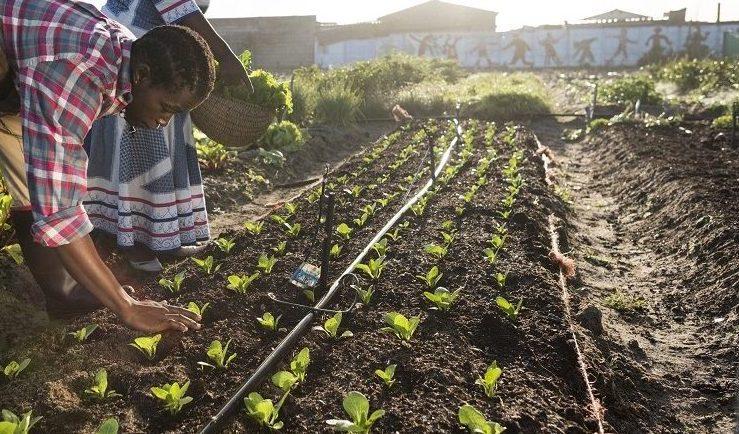Evidence session 5: Building resilience to shocks
The Commission’s fifth and final session took place at LSE on 28 September 2017.
Countries facing fragility and conflict lack resilience to conflict and other shocks – conflict, economic instability, poverty, climate change, epidemics, and fragility tend to feed off each other in a negative cycle. The end of the commodity price boom represents a major economic shock for most of the developing world, especially Africa. The recent outbreak of Ebola in West Africa provides another example of a shock producing significant economic costs, loss in confidence and panic, the breakdown of formal systems, and global alarm. The lack of social protection and poverty graduation programmes in fragile environments weaken state legitimacy and capacity. There is a need now to use research to identify specific policies that build resilience to conflict and other shocks.
A blog summarising the key findings from the session is available here.
Videos

There is a need now to use research to identify specific policies that build resilience to conflict and other shocks. Photo by Getty Images
Evidence session witnesses
Debbie Hillier is a Senior Humanitarian Policy Adviser at Oxfam. Currently, her work focuses on policy aspects of the nexus of climate change and humanitarian issues – looking at climate change aspects of humanitarian disasters and response and with a particular focus on disaster risk reduction. From 2002 to 2010, she worked in the humanitarian team, concentrating on conflict and arms control, working on the development of UK legislation, European arms controls, and most significantly in developing and driving the Control Arms campaign – providing policy, research, and strategic advice to achieve an international Arms Trade Treaty, which is now being discussed in the UN.
Herbert M’cleod is the Country Director for IGC Sierra Leone and IGC Liberia. He has been an advisor to the Government of Sierra Leone in its transition from post-conflict to normal development and at the forefront of efforts to ensure the application of human rights in the operations of the extractive industry. His prior career spans 35 years of development work in fragile countries for the UN Development Programme.
Peter Sands is a Research Fellow at Harvard University, dividing his time between the Mossavar-Rahmani Center for Business and Government at the Kennedy School and the Global Health Institute, part of the School of Public Health. He previously served almost nine years as Group Chief Executive of Standard Chartered PLC, which is arguably more involved with fragile states than any other international bank, with direct involvement in Sierra Leone, Zimbabwe, Angola, Afghanistan, Lebanon, and Myanmar. Prior to being appointed Chief Executive in 2006, he was Group Finance Director of the bank from 2002. Before joining the bank, he was a Director of McKinsey & Co. He chairs the World Bank’s International Working Group on financing preparedness and the US National Academy of Medicine’s Commission on a Global Health Risk Framework for the Future.
Clare Shakya is Director of the Climate Change Group at the International Institute for Environment and Development (IIED). She has over 25 years of experience in development, in climate, energy, and natural resources. She spent 15 years with DFID leading Asia and then Africa Division’s climate change response, integrating climate change thinking and finance into development interventions. At IIED, she oversees the propositional research of its climate change group and their strategy to work with and for the poor to deliver climate action that is far-reaching, far-sighted, and socially just. She supports least developed countries’ climate negotiators in developing an initiative to build their capability to leapfrog to a modern distributed smart grid. She works with the group on getting climate finance to where it matters most: to the local level in support of the poor’s priorities for climate positive action, on the governance of risk and mechanisms to tackle the compounding risk for the poorest, and on building the Global South’s capabilities to end the culture of fly-in fly-out technical assistance.
Dr. Albert G. Zeufack is the World Bank’s Chief Economist for Africa. Prior to his appointment in May 2016, he was Practice Manager in the Macroeconomics and Fiscal Management Global Practice and leader of the World Bank-wide Community of Practice for the Management of Natural Resources Rents. His main research interest is in the micro-foundations of macroeconomics. He joined the World Bank in 1997 as a Young Professional and started his career as a research economist in the Macroeconomics Division of the Research Department. Since then, he has held several positions in Africa, East Asia and Pacific, Europe, and Central Asia regions. Between 2008 and 2012, on leave from the World Bank, he was the Director of Research and Investment Strategy/Chief Economist for Khazanah Nasional Berhad, a Malaysian Sovereign Wealth Fund.

